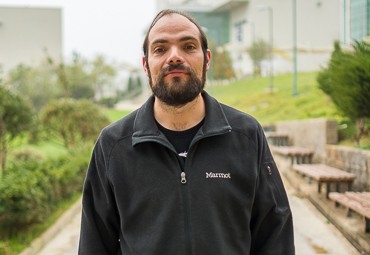IPPS Online Seminar Series August 4, 2021 at 3:00 PM GMT (8:00 AM Los Angeles, 10:00 AM Bogota/Brasilia, 11:00 AM New York/Santiago, 4:00 PM Abuja/London, 5:00 PM Amsterdam/Berlin/Cape Town, 6:00 PM Nairobi/Tel Aviv, 11:00 PM Beijing, 12:00 AM Tokio, 01:00 AM (next day) Canberra)
Climate change is triggering ecological responses all over the world as a result of frequent, prolonged droughts. It could also affect ecological interactions, particularly pollination and seed dispersal, which play a key role in plant reproduction. We used a tripartite interaction with a mistletoe, its pollinator and its disperser animals to gain insight into this issue. We studied flower and fruit production, and visitation rates during average (2012) and dry (2015) austral summers. Drought in our study area affected precipitation and soil water availability. Although pollinator visits did not significantly differ in these summers, during the dry summer flower and fruit production experienced an important decline, as did seed disperser visits. Also, mistletoe mortality increased from 12% in 2012 to 23% in 2015. This empirical evidence suggests that the cascade effects of climate change may indirectly be hindering ecological interactions in the Valdivian temperate rainforest ecosystem we studied. Long-term research is essential to provide the knowledge necessary to understand how key ecological processes may be affected in a changing world.
Francisco E. Fontúrbel is a biologist working on plant-animal and plant-plant interactions in a global change framework. He is currently working at the Pontifical Catholic University of Valparaíso (Chile) as an associate professor, leading some research projects and teaching ecology. An important part of his work is based on mistletoes and its eco-evolutionary responses to anthropogenic disturbance, mediated by their pollinator and seed disperser agents.
